The American Academy of Ophthalmology recognized six Penn Medicine clinicians and researchers at its annual meeting in October. These awards honor ophthalmologists in multiple stages of practice and for a range of activities, from humanitarian service and significant contributions to the profession, to mentorship and faithful volunteer service.
The winners include:
Graham E. Quinn, MD, MSCE, an emeritus professor of Ophthalmology, received an Outstanding Humanitarian Service Award, in recognition of his efforts to improve outcomes for infants with retinopathy of prematurity (ROP) — the leading cause of preventable blindness in premature infants worldwide.
Michael E. Sulewski, MD, chief of Ophthalmology at the Corporal Michael J. Crescenz Veterans Affairs Medical Center, Maureen G. Maguire, PhD, the Carolyn F. Jones Professor of Ophthalmology, and Prithvi S. Sankar, MD, professor of Clinical Ophthalmology, each received Secretariat Awards. This award recognizes members and non-members for special contributions to the Academy and ophthalmology outside the scope of the current Achievement Awards program.
Ebenezer Daniel, MBBS, MS, DO, MPH, PhD, and Brian L. VanderBeek, MD, MPH, both assistant professors of Ophthalmology, received Achievement Awards, which recognize members and non-members who have accumulated 10 points towards the Achievement Awards program.
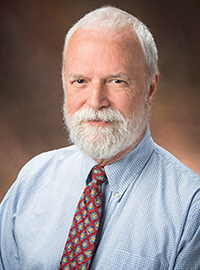 Quinn Quinn |
 Sulewski Sulewski |
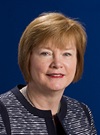 Maguire Maguire |
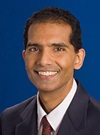 Sankar Sankar |
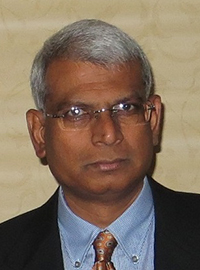 Daniel Daniel |
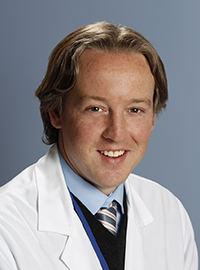 VanderBeek VanderBeek |
 Corey J. Langer, MD,
Corey J. Langer, MD,
Corey J. Langer, MD, a professor of Hematology-Oncology and director of Thoracic Oncology in the Abramson Cancer Center, was chosen by The American Society for Radiation Oncology as its 2019 Honorary Member. This is the highest honor that ASTRO bestows upon cancer physicians and researchers in disciplines outside of radiation oncology, radiobiology, and medical physics.
 L. Scott Levin, MD, FACS, FAOA,
L. Scott Levin, MD, FACS, FAOA,
L. Scott Levin, MD, FACS, FAOA, chair of Orthopaedic Surgery, the Paul B. Magnuson Professor of Bone and Joint Surgery and a professor of Plastic Surgery, was inducted into the Academy of Master Surgeon Educators as a member on Oct. 4, 2019 in Chicago. This prestigious group’s mission is to recognize and assemble a group of innovative master surgeons who will work together with the American College of Surgeons to advance surgical education and training. Levin was named to the steering committee of the group last year, and he is the only orthopaedic surgeon to be inducted this year.
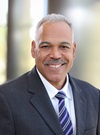 Charles L. Nelson, MD
Charles L. Nelson, MD
Charles L. Nelson, MD, a professor of Orthopaedic Surgery and the chief of Adult Reconstruction, was newly elected to a 10-year term on the American Board of Orthopaedic Surgery (ABOS). The board is made up of 21 members who are elected after recommendations from the American Orthopaedic Association (AOA), the American Academy of Orthopaedic Surgeons (AAOS), and the American Medical Association (AMA). Nelson specializes in joint replacement.
 Kelly Abramson
Kelly Abramson
Kelly Abramson, an executive in International Business Development, was presented with the inaugural Vizient University Health System Consortium Global Executive Services Network Leadership Award. Granted to a person who was nominated by fellow network members, this award was developed by the network’s steering committee to recognize an individual who exemplifies the Vizient Consortium Global Executive Services Network’s spirit of collaboration, shared knowledge, and dedication to excellence in patient facilitated services, executive health and/or international health among Vizient’s academic medical center participants. The award is granted to an individual who has devoted time to the mentoring of new professionals in these areas; openly shares lessons learned and innovative thinking with network members at all levels of experience; and provides sustained support and ongoing contributions to the network. This month, Abramson was also appointed as an Industry Scholar with the Cornell Institute for Health Futures.
 Scott Halpern, MD, PhD
Scott Halpern, MD, PhD
Penn Medicine’s Palliative and Advance Illness Research (PAIR) Center, directed by Scott Halpern, MD, PhD, an associate professor of Medicine, Epidemiology, and Medical Ethics and Health Policy, has been awarded a five-year $2.5 million grant from the National Institute on Aging to fund a Roybal Center. The Roybal Center program is dedicated to the translation and integration of basic behavioral and social research findings into interventions that improve the lives of older people and to help institutions adapt to societal aging. The NIA has funded a Roybal Center at the Center for Health Incentives and Behavioral Economics (CHIBE) since 2008. With this award to PAIR, Penn now has the distinction of being the only institution in the country with two Roybal Centers.
 Harsha Thirumurthy, PhD
Harsha Thirumurthy, PhD
 Alison Buttenheim, PhD, MBA
Alison Buttenheim, PhD, MBA
Harsha Thirumurthy, PhD, an associate director of Penn’s Center for Health Incentives & Behavioral Economics (CHIBE), and Alison Buttenheim, PhD, MBA, interim director of CHIBE, have received a three-year, $3.5 million grant from the Bill and Melinda Gates Foundation to establish a first-of-its-kind HIV-focused nudge unit in South Africa. The nudge unit will form partnerships with government and HIV services providers and test behavioral interventions to increase population-level coverage of HIV prevention services. The project will be led by CHIBE with a strong local partner, HE2RO (Health Economics and Epidemiology Research Office at Wits University in Johannesburg).
Penn Medicine is one of the world’s leading academic medical centers, dedicated to the related missions of medical education, biomedical research, excellence in patient care, and community service. The organization consists of the University of Pennsylvania Health System and Penn’s Raymond and Ruth Perelman School of Medicine, founded in 1765 as the nation’s first medical school.
The Perelman School of Medicine is consistently among the nation's top recipients of funding from the National Institutes of Health, with $550 million awarded in the 2022 fiscal year. Home to a proud history of “firsts” in medicine, Penn Medicine teams have pioneered discoveries and innovations that have shaped modern medicine, including recent breakthroughs such as CAR T cell therapy for cancer and the mRNA technology used in COVID-19 vaccines.
The University of Pennsylvania Health System’s patient care facilities stretch from the Susquehanna River in Pennsylvania to the New Jersey shore. These include the Hospital of the University of Pennsylvania, Penn Presbyterian Medical Center, Chester County Hospital, Lancaster General Health, Penn Medicine Princeton Health, and Pennsylvania Hospital—the nation’s first hospital, founded in 1751. Additional facilities and enterprises include Good Shepherd Penn Partners, Penn Medicine at Home, Lancaster Behavioral Health Hospital, and Princeton House Behavioral Health, among others.
Penn Medicine is an $11.1 billion enterprise powered by more than 49,000 talented faculty and staff.